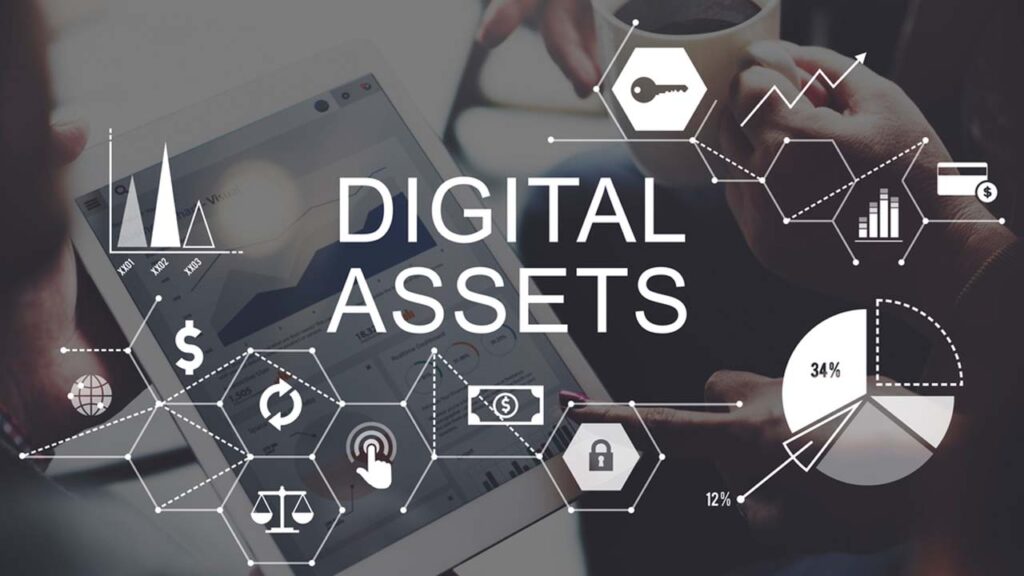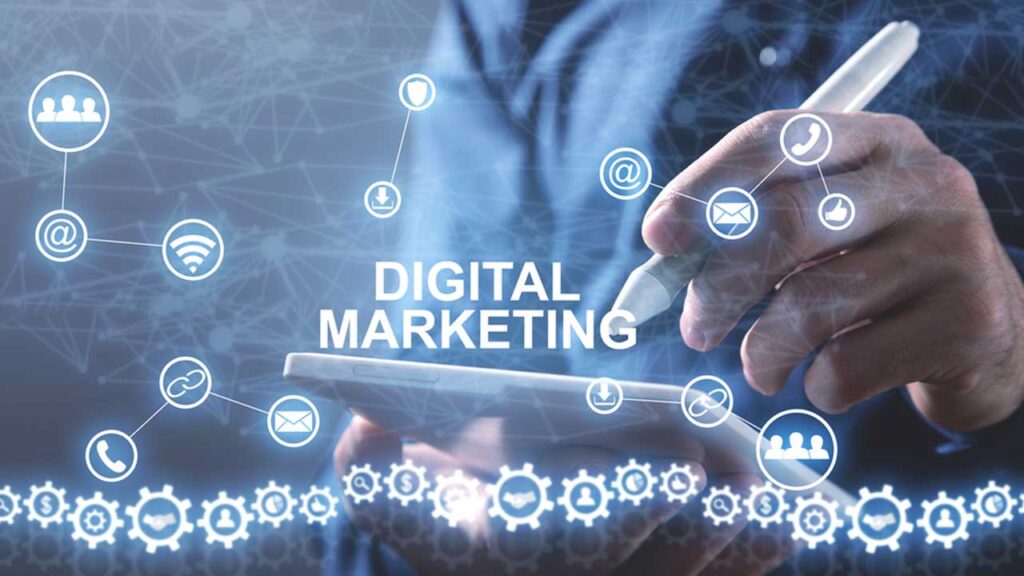Unlocking Business Growth: Why Is Content Marketing Important?
Brett Lewis
Content Marketing - July 15, 2024

Why is content marketing important? It’s because it has fundamentally shifted how brands connect with their audiences. In today’s information-rich world, businesses thrive by sharing knowledge, not just pushing products. Content marketing lets you do just that, creating lasting relationships that go beyond a one-time sale. It equips you with the tools to be seen, valued, and trusted. We will explore its undeniable influence on brand growth, audience engagement, and the smart economics that make it indispensable for businesses looking to succeed online.
Key Takeaways
- Content marketing is pivotal for business growth by establishing trust and authority, which leads to increased customer acquisition and retention, enhancing online visibility and credibility through valuable, educational content.
- Content marketing is a cost-effective strategy, often outperforming traditional marketing by enabling businesses to generate more leads at lower costs and providing a better return on investment with compounding value over time.
- A well-integrated content marketing strategy underpins digital marketing campaigns, improves SEO, fosters engagement across social platforms, and drives innovation by staying abreast of market trends and evolving consumer needs.
The Power of Content Marketing in the Digital Age

Imagine having a tool in your business arsenal that not only enhances your online visibility but also establishes you as an industry authority. Sounds intriguing, right? That’s the power of content marketing in this digital age. It transcends traditional advertising, focusing on engaging content creation that helps businesses establish a robust online presence.
Businesses can foster trust within their audience through the provision of educational content that addresses questions and pain points. This trust, coupled with the credibility gained by establishing themselves as industry authorities, plays a pivotal role in attracting clients. Therein lies the power of content marketing – it grows businesses by attracting the right audience and turning them into customers, thereby enhancing a website’s value through optimized content.
A Strategic Path to Visibility and Authority Online
In the online world, visibility and credibility are two sides of the same coin. And guess what? Content marketing is the coin flipper. Businesses can solidify their position as industry authorities through the creation and distribution of high-quality content. This not only enhances their online visibility but also contributes to superior search engine rankings.
The creation of high-quality content significantly bolsters a company’s online reputation, thus enhancing their credibility and authority in the industry. So, by adopting a strategic marketing approach focused on content creation, businesses can carve their path to visibility and authority online.
From Engagement to Conversion: The Role of Quality Content

Engagement is the first step towards conversion, and quality content is the key that unlocks this gateway. Tailored messaging in content marketing engages ideal customers effectively, leading to higher engagement and conversion rates.
Informative content empowers potential customers by targeting a clearly defined audience, simplifying their decision-making process and increasing the likelihood of conversion. Consistent and persuasive marketing messages foster informed decisions regarding a brand’s value proposition, thereby enhancing conversion rates and sales.
Businesses can foster connections and educate their audience by offering comprehensive answers to their queries via high-quality, original, and long-form content, guiding them towards the next step with a clear call-to-action.
Sustaining Growth Through Customer Retention
The essence of sustainable business growth lies not only in acquiring new customers but also in retaining existing ones. Content marketing plays a crucial role in fostering long-term relationships and client loyalty by keeping existing clients engaged with regular updates and exclusive content.
A positive brand reputation can lead to repeat sales from satisfied clients, and a good content marketing plan can help to build and maintain that reputation. Quality content provides both prospects and customers with a positive experience, reinforcing their perception of the brand and keeping them coming back for more. This focus on customer delight through engaging content also encourages referrals, giving businesses a competitive edge in the market.
The Cost-Effectiveness of Content Marketing
While the benefits of content marketing are aplenty, one of its most appealing aspects is its cost-effectiveness. Content marketing offers the following advantages over traditional advertising:
- It costs less while generating more leads
- It leverages owned or earned channels, which are more cost-effective
- It fosters a lasting impact through trust and relationship-building
This strategic marketing approach provides significant savings and long-term benefits.
Despite its lower costs compared to traditional marketing, content marketing delivers a better return on investment. As such, content marketing is recognized as one of the most cost-effective strategies that create compounding value over time without continuous spending.
Comparing Costs: Content Marketing vs. Traditional Marketing
When it comes to comparing costs, content marketing has an upper hand over traditional marketing. On average, content marketing costs 62% less than traditional marketing. Yet, it has the potential to generate up to three times as many leads as traditional marketing.
Traditional advertising can reach a broad audience immediately but often comes at a higher cost and may be less targeted than content marketing. Thus, businesses can achieve substantial savings and better targeting by favoring content marketing over traditional approaches.
Measuring Returns: The Compounding Value of Content Assets

The returns on content marketing investments are not just immediate but also compound over time. A single piece of content can continue to generate leads and drive sales for years, contributing to the long-term benefits of content marketing investments.
Moreover, informative content aimed at building relationships can lead to increased brand loyalty, a key driver of long-term sales. This preference for learning about a company through articles rather than ads showcases consumer inclination towards content marketing, further enhancing the returns of content marketing efforts.
Building Brand Awareness and Reputation
Building a successful brand is about more than just selling a product or service. It’s about connecting with your audience, telling a story, and creating a reputation. And that’s where content marketing shines. Consumers today are more responsive to meaningful connections and narratives, an area where content marketing excels compared to traditional advertising.
Businesses can build these connections and enhance both conversions and brand awareness through the provision of valuable content. Providing quality content and creating value without immediate return fosters trust between the audience and the brand. Not only does this reinforce brand recognition, but it also develops a strong brand reputation through custom content strategies designed to appeal to target customers.
Crafting a Compelling Narrative for Your Brand
Crafting a compelling narrative for your brand is a crucial part of content marketing. Sharing a company’s story, successes, beliefs, and values can foster a more personal connection with customers.
Providing free educational resources like downloadable guides can build trust with site visitors and promote brand awareness. Moreover, emerging trends such as interactive content, personalized content, and video content can help brands capture attention and increase engagement.
Publishing content on your own website guarantees ownership of the content and platform, which are crucial assets for maintaining brand awareness.
Earning Trust Through Educational Content
Earning trust is a fundamental element of successful content marketing. Businesses can establish trust with their brand by providing their audience with relevant and valuable content. Content marketing helps build this trust by addressing the needs of the audience, establishing credibility, and positioning the business as a thought leader in its space. Using accurate and reliable information in content creation is vital to establish a brand as trustworthy. Platforms like blog posts can serve as platforms to share knowledge and establish a trusted voice in the industry, further enhancing brand awareness.
During the evaluation stage, prospective customers assess their need for a product or service, and content like case studies, white papers, and webinars can help build trust. Finally, content in the middle of the funnel aims to build trust with prospects by answering questions they may have before making a purchasing decision.
Content Marketing’s Impact on the Sales Cycle
Content marketing plays a crucial role in guiding potential customers throughout the sales cycle. The content marketing funnel consists of four stages:
- Awareness
- Evaluation
- Conversion
- Delight
These stages correspond to different parts of the customer journey.
To create content for different stages of the buyer’s journey helps meet prospects where they are and draws them into the business. Content marketing acts as a catalyst in the sales cycle by efficaciously guiding potential customers from their initial awareness to the purchasing decision.
Social media content, in particular, can drive profitable customer action, leading to more subscribers or sales within the marketing funnel.
Attracting Prospects at the Top of the Funnel
The top of the marketing funnel is all about attracting prospects. Effective top-of-funnel content pre-empts the audience’s challenges and initiates engagement even before they actively seek out the company’s products or services.
Educational content at the awareness stage includes:
- Blog posts
- Social media
- Infographics
- Videos
These types of content are intended to inform the audience about the brand’s narrative and solutions. Businesses can achieve more personalized messaging and higher engagement rates by setting content marketing apart from generic outreach common in traditional advertising.
Studies show that a significant portion of B2B buyers read multiple pieces of content before initiating a dialogue with sales, highlighting the impact of content on purchasing decisions.
Nurturing Leads Through the Middle of the Funnel

Once prospects are in the funnel, the next step is nurturing these leads. Middle-of-funnel content is designed to help audience members understand their options and position the company’s solution in a favorable light, guiding them through the evaluation stage.
Content in the evaluation stage should:
- Gradually guide prospects toward a purchasing decision
- Focus on nurturing the lead rather than pushing for immediate conversion
- Play a crucial role in building relationships with potential customers
- Guide them towards conversion
Sealing the Deal: Content That Converts at the Bottom of the Funnel
The bottom of the funnel is where the real magic happens – conversion. Bottom-of-funnel content is crucial for boosting conversions and finalizing sales by addressing the needs of customers ready to make a purchase.
Conversion content builds customer confidence through reviews, demonstrations, and free trials, directly influencing the decision to purchase. Content marketing can effectively seal the deal at the final stage of the sales cycle by emphasizing unique selling points and utilizing psychological triggers to prompt action.
Enhancing Digital Marketing Campaigns with Content

Content marketing doesn’t exist in isolation. It forms the cornerstone of all digital marketing campaigns, underpinning essential activities such as search engine optimization, creating effective landing pages for ads, and enhancing online reputation.
Content marketing serves as a strategic foundation, helping to deliver the appropriate message to the targeted audience through the most effective channels. A well-planned content strategy ensures consistent high-quality content across various digital channels like email and guest blogging, which in turn increases digital presence and contributes to greater social media traction. Implementing a successful digital marketing campaign relies heavily on these content marketing efforts and a solid digital marketing strategy.
Content should be promoted across various platforms, including social media, email marketing, and external blogging opportunities, to enhance visibility. So, employing content marketing strategies is key to drawing customers through the marketing funnel towards conversion and purchase decisions.
Synergizing with Social Media Platforms
Social media and content marketing go hand in hand. A well-executed content marketing strategy can lead to increased social media engagement by providing valuable and relevant content that meets the audience’s interests. Strategic content planning aligns with social media campaigns to ensure messaging consistency and tone across various platforms, bolstered by collaboration between content and social media teams for cohesive and powerful campaigns.
Social media platforms can be utilized as channels for content distribution to maximize the reach and visibility of a brand’s content, leveraging their wide user base. Therefore, businesses can utilize company blogs and social media for content distribution and achieve superior results by distinguishing content marketing from traditional advertising methods like TV and print ads.
Optimizing for Search Engines
Search engines love quality content. Consistent, high-quality content is a major factor in winning search engine rankings and is valuable to search engines because they aim to serve users with useful content.
Significant improvements to a business’s search engine optimization can be achieved by optimizing content with relevant keywords as part of content marketing efforts. Content marketing aligns with SEO practices to enhance the visibility of content in search results, creating more opportunities for the brand to get noticed and build lasting relationships with the audience.
Content Marketing as a Driver for Innovation and Adaptation
Innovation and adaptation are key to success in the fast-paced digital landscape, and content marketing serves as a driver for both. Innovation in content marketing, especially with social media, is critical for businesses to remain competitive and relevant.
Social media platforms provide opportunities for businesses to develop fresh, innovative content strategies catering to a wide audience. Adaptation in content marketing tactics is also vital for businesses to stay ahead in the frequently changing digital landscape.
Staying Ahead of Market Trends
Staying ahead of market trends is no longer a luxury but a necessity in today’s dynamic business environment. Content marketing is crucial for businesses to connect with their audience and drive growth by staying updated with market trends. Brands can augment their visibility, engage their audience more effectively, and drive conversions by embracing content marketing trends such as:
- Video content
- Interactive content
- Personalized content
- User-generated content
- Voice search optimization
By incorporating these trends into their content marketing strategies, businesses can stay relevant and competitive in the ever-changing market.
Staying informed about content marketing trends allows companies to adapt their strategies to align with consumer preferences and market changes. Organizations should stay ahead of market trends by regularly analyzing industry reports, social media, and competitor activities, utilizing tools like SWOT and competitor analysis for strategic insights. A content marketing strategy should be agile and adaptable, ready to embrace new trends and adjust to changing consumer behaviors.
Adapting Content Strategies for Evolving Consumer Needs
Adapting to changing consumer preferences involves:
- Fostering a culture of continuous learning and improvement using customer feedback metrics
- Delivering targeted messaging that results in more impactful and relevant marketing campaigns
- Understanding their audience’s preferences
Businesses can cultivate flexibility and agility in their content strategies by adopting methodologies such as lean startup and design thinking. Encouraging a culture of learning and experimentation can lead to the development of more innovative and effective content strategies.
Successful content types for specific customer segments can be identified and replicated through the use of content scoring.
Summary
Content marketing is a powerful tool in the digital age, helping businesses establish online visibility, engage and convert audiences, and retain customers for sustainable growth. It is a cost-effective strategy that enhances digital marketing campaigns, builds brand awareness and reputation, and impacts the sales cycle. By staying ahead of market trends and adapting content strategies to meet evolving consumer needs, businesses can harness the power of content marketing to drive innovation and adaptation, ultimately leading to business growth and success.
Frequently Asked Questions
What is the role of content marketing in the digital age?
Content marketing plays a crucial role in the digital age by helping businesses build online visibility, engage and convert audiences, and retain customers for long-term success.
How is content marketing cost-effective?
Content marketing is cost-effective because it costs less than traditional marketing but yields more leads, resulting in savings over traditional advertising.
How does content marketing build brand awareness and reputation?
Content marketing builds brand awareness and reputation by crafting a compelling brand narrative and earning trust through educational content.
How does content marketing impact the sales cycle?
Content marketing impacts the sales cycle by guiding potential customers from initial awareness to the purchasing decision, attracting and converting prospects into customers.
How does content marketing drive innovation and adaptation?
Content marketing drives innovation and adaptation by staying ahead of market trends and adapting content strategies to meet evolving consumer needs.
